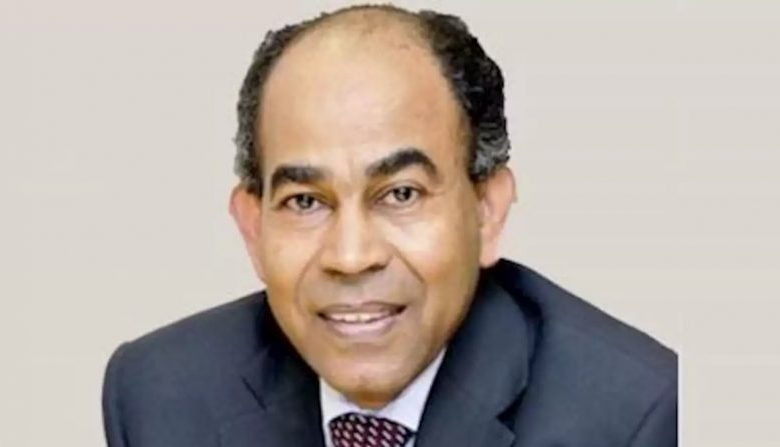The Next Step After the Liberation of Khartoum

By: Othman Mirghani
With the liberation of Khartoum and the expulsion of the Rapid Support Forces (RSF), the Sudanese army has achieved a decisive and remarkable victory in the course of the war. This triumph restored the symbol of sovereignty—the Republican Palace—along with ministry headquarters and some of the country’s most important facilities. It also dealt a crushing blow to the RSF leadership and its supporters’ ambitions to seize power and control Sudan after the outbreak of war on April 15, 2023. This dream was vividly documented by RSF fighters who roamed the streets that morning, chanting with excitement and pride, “We have taken over the country… We have taken over the country.”
The recapture of the Republican Palace marked the beginning of a rapid collapse of RSF forces in Khartoum, which will have significant military and psychological repercussions for them.
I do not understand those who attempt to instill fear by arguing, in a twisted logic, that the army’s victory in Khartoum complicates the situation and increases the likelihood of Sudan’s division. The truth is that the threat to Sudan’s unity does not stem from the army’s victory; rather, its success protects the country’s unity and counters any sick attempts to divide it. It is the army’s defeat that could lead to fragmentation, encouraging opportunists, conspirators, and those eyeing Sudan with greed.
Others are fueling doubt from a different angle, claiming that after liberating Khartoum, the army may not be eager to continue the war in Darfur, effectively leaving it under RSF control. This, they argue, would allow the RSF and its allies within the “Tasis” platform to establish a parallel government, pushing Sudan toward division.
Such rhetoric carries insidious implications, suggesting that the army is indifferent to Darfur and was only concerned with liberating Khartoum and, before that, Al-Jazira. The goal of spreading this narrative is to stoke ethnic and regional tensions, promoting the divisive idea of “central and northern Sudanese versus the marginalized regions.” The claim implies that the army will not fight for Darfur with the same enthusiasm and determination.
Those pushing these arguments are desperately trying to spoil people’s joy over the liberation of Khartoum and other areas reclaimed by the army. RSF control has now been reduced to the capitals and parts of four out of Darfur’s five states, as well as parts of Kordofan.
Beyond this, the ultimate aim of spreading such narratives is to create confusion, fear, and frustration in the hope of pressuring the army leadership into negotiations with the RSF—an increasingly unlikely prospect. Many now believe that the window for negotiations has closed. The army is determined not to give the RSF any opportunity to regroup, and its leaders have clearly stated that any negotiations will only concern surrendering weapons, handing over remaining positions, and ensuring accountability for crimes committed. They have also emphasized that the RSF and its leadership will have no future political or military role. This hardline stance largely reflects public sentiment, as the gap between the RSF and most Sudanese has widened due to its widespread violations, destruction of civilian property, and damage to state institutions.
Notably, warnings of Sudan’s division tend to surface after every major military success. The same rhetoric emerged after victories in Al-Jazira and was echoed in discussions surrounding the proposed parallel government. Those behind the idea dreamed of establishing its headquarters in Khartoum, arguing that it would solidify Sudan’s division: areas under army control in central, northern, eastern, and southeastern Sudan managed from Port Sudan, while RSF-held territories in Darfur, parts of Kordofan, and parts of Khartoum would be governed by the parallel administration—or so the thinking went.
Just days before the army entered the Republican Palace, RSF leader Mohamed Hamdan Dagalo (Hemedti) reappeared from one of his frequent long absences. In a hastily recorded video message, he attempted to boost his troops’ morale and encourage them to fight amid reports of widespread desertions. His speech, however, was neither convincing nor resilient in the face of fast-moving developments. He insisted that his forces would not withdraw from the palace, would not leave Al-Muqrin and other strategic areas in central Khartoum, and would reclaim lost ground to secure victory.
Not only did Hemedti’s message fail to achieve its intended effect, but it also exposed the widening rift between RSF leadership and its rank-and-file fighters. Dissatisfaction among RSF troops has been increasingly evident in leaked voice recordings and widely circulated video clips.
While the decisive victory in Khartoum is significant, it does not mark the end of the war. There is still a long road ahead. However, this battle represents a turning point in the war’s trajectory and its ultimate outcome.
Now, attention will shift to Kordofan and Darfur, as the army and its allied forces have declared that the fight will move directly there, with the goal of reclaiming every last inch of Sudanese territory. This stands as a direct rebuttal to those propagating the idea of Sudan’s division.
Source: Asharq Al-Awsat



